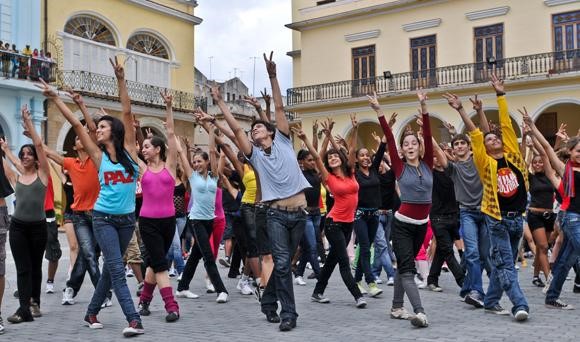You might’ve heard it – when it comes to diversity, you have to be tolerant.
Be tolerant of different race, ethnicity, age, socio-economic status, gender, sexual orientation, disability, religion, education, different mindsets and ways of doing things.
But what does tolerance mean but an ability to put up with something?
According to the dictionary, tolerance comes from a Latin word ‘tolerare’ which means to bear and endure. Rather negative, don’t you think?
We can tolerate a very hot weather, but it doesn’t mean we like it. It actually means that we suffer through it as we might not have other option. In the same context, tolerating a class mate from a different culture or a work colleague with different sexual orientation - it sounds like that under the umbrella of tolerance - we have to put up with this person but it does not imply that we accept them, understand them, appreciate them, share with them or are in some way connected to them.
Is this what we are meant to do, or is diversity calling us to be more? More accepting, understanding, more open, adaptive….more human?

If I tolerate you – what does that tell you about how I feel about you? Does a Mum only tolerate her child? Does a friend only tolerate her best friend?
I don’t know about you, but I wouldn’t like to be tolerated by anyone.
Firstly, it tells me you are only putting up with me because you have to – most likely because that is what your University or your Human Resources department at work is promoting. Or perhaps because you have no other option.
Secondly it tells me that you somehow see yourself better or more powerful than me; that you have the freedom and power to tolerate me. No equality here.
Tolerance might be trendy, but it spells out non-attachment, coldness, and no sense of belonging or spontaneous human connection.
Being stuck in tolerance business does not benefit anyone. It locks us into our own safety nets, things we know, beliefs we cling on to and it does not allow us to grow. We exist in our own circles, scared of change, or really listening to someone else’s story that might shift how we perceive the world. When confronted with opinions that differ from our own values and behaviours, we withdraw not wanting to cause a conflict and at the same time missing out on possible new conclusions, ideas, values, beliefs that might come out of that conflict. Missing out on growth and creativity.
There is practically no sphere of life that does not advocate for the benefits of diversity. Education emphasizes the need for a diverse and well-educated workforce to meet the needs of diverse market place, and at the same time believe that diversity enriches the educational experience of all students, not just minorities. (1)
Business world loves diversity. According to McKinsey, companies ranking in the top quartile of executive-board diversity were 35% likelier to financially outperform the industry medians. Other research finds that diverse teams make better business decisions 87% of the time. (2)
Social diversity is also good for our minds; for our capacity to innovate and our ability to grow. This impacts a whole range of domains that use the brain’s capacity, whether it be in business, health, education or the arts. (3)

But let’s not make diversity only a business case.
Beyond the colour of our skin, God we believe in, and clothes we wear there lies a human being in every single one of us. A human being with its unique dreams, challenges, needs and motivations. There are thousands stories and thousands different voices.
If we connect and share, we can explore our own prejudices that prevent us from understanding someone else’s difficulties, needs and motivations, and from seeing them for who they really are. Perhaps in this way, we can come to realization that I am not better or more powerful then you, neither you are from me. Perhaps through this human connection we would be curious and celebrate values and talents that each one of us brings in a different way.
Tolerance is about being invited to a dance and standing in the corner, and true inclusion is dancing together.
So when at the next project group at University, parents meeting or work function - notice differences, explore opinions, really listen to what someone else, different then you has to say. Dance with differences, be ok with not knowing the steps, be ok with stepping on each other’s toes, learn from others, and stay open to new moves that come from really being and dancing together.
/ Ivana Busljeta
Contact: ivana@nonviolence.com www.nonviolence.com
References:
(1) The Conversation: Universities making the case for diversity is part of making amends for racist past. Retrieved from: http://theconversation.com/for-universities-making-the-case-for-diversity-is-part-of-making-amends-for-racist-past-101003
https://www.forbes.com/sites/shelleyzalis/2017/11/30/the-truth-about-diversity-and-why-it-matters/
(3) The Guardian. Diversity, it’s good for your brain. Retrieved from: https://www.theguardian.com/lifeandstyle/2015/nov/01/diversity-good-for-your-brain-mind-multicultural


The Non-Violence Project Foundation is a non-profit organization with special consultative status to the United Nations Economic and Social Council (ECOSOC).

anna.hellman@nonviolence.com

goran.bergquist@nonviolence.com
+46 70 586 02 01

filippa.idsater@nonviolence.com
+46 70 551 49 69